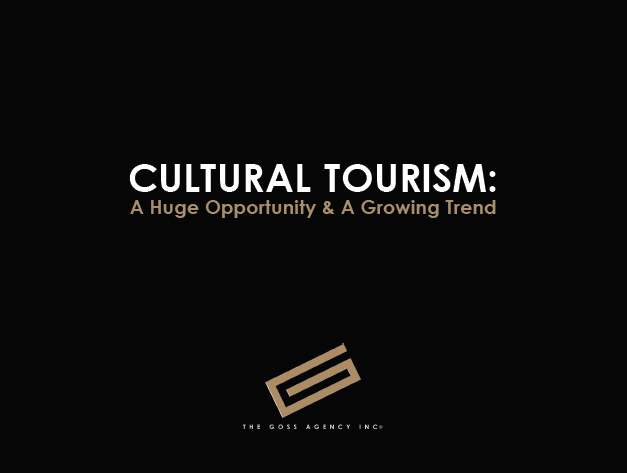Excerpt from our Cultural Tourism Whitepaper, available via newsletter sign-up: http://eepurl.com/bM3KBX

Of equal significance is the trend driving the trend. The fact is, today’s interest in cultural tourism is really a manifestation of a larger and even more fundamental trend: post-modernism. Culturally, we crave that which is more personally relevant and less packaged or mass produced. For the fifty years following World War II, our economy has pursued a strategy largely defined by modernism. An emphasis on production, efficiency, the modern corporation, and, of course, mass marketing. General Motors, IBM, McDonalds, Wal-Mart, and, in the travel and destination industry, Disney. From industry-to-industry, we’ve homogenized it. Yes, we have achieved improved convenience and attainability, and we’ve hit that price point. The trade-off…
America has morphed into “Generica.” Some would say: no small sacrifice. The places we’ve loved, or at least been curious about, have lost their specialness. They all look a little more like each other. And for what? A discount mall? Shame on us.
Fortunately, there is a counter-trend and a generational cohort really driving, if not insisting on, the change. It’s called post-modernism. The post-modern aesthetic has everything to do with authenticity and personal meaning. We no longer settle for the ring tone that everyone has (remember it?) but instead download something that somehow communicates something about us. Using the telephone as an example, there are many different sizes, shapes, storage capabilities, brands, and apps. There is a mega-industry devoted to customization of the protective case and another one for the ring tones. The point is, we want it our way (not their way).
The unavoidable truth is that mass production has produced a counter-trend–a preference for its antithesis. Artisanal products, craft products, hand-made, and in the travel space, authentic and immersive experiences that you can’t find just anywhere.
And there are a host of sub-trends: social media, curation, shop-small, buy-local, mass customization, etc. And the specific means by which the travel industry is tapping this macro-trend is called: cultural tourism. It is a way to confer and achieve unique experiences. It is more about truly being somewhere than just going somewhere. It is immersive, experiential, educational, and soul-cleansing.
Hey, Dad, are we there yet?
